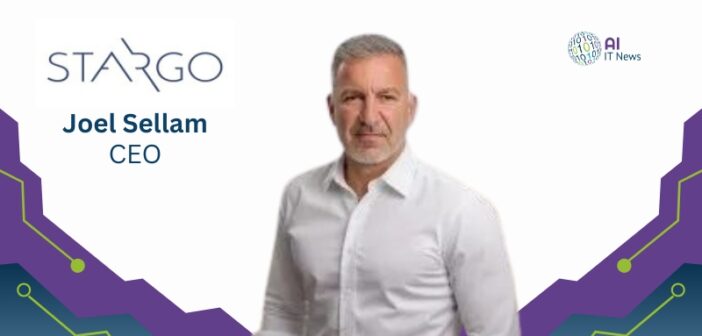Stargo is a freight-tech innovator dedicated to transforming how businesses within the global freight supply chain operate. Its mission is simple yet ambitious: to make shipping easy, automated, and profitable. By leveraging AI and machine learning, Stargo turns unstructured pricing, routing, and booking data into structured insights that drive better decision-making. The company’s suite of pricing, routing, and proposal optimization solutions empowers freight forwarders, carriers, and customs brokers to increase win rates, boost margins, and improve productivity by automating time-consuming processes. With Stargo, proposals that once took hours can now be generated in seconds, enabling logistics teams to focus on delivering value to customers instead of wrestling with manual workflows.
Joel Sellam, founder and CEO of Stargo, has over 20 years of experience in global logistics and a track record of tackling the industry’s toughest challenges. His leadership emphasizes collaboration, innovation, and creating solutions that reflect how logistics truly works.
1. Career Journey: Can you share the most interesting story that happened to you since you started your career, especially one that shaped your leadership approach at your current company?
Early in my career, I ran logistics operations across Southeast Asia, Africa, and the Middle East. Each day demanded quick decisions. I learned that the people closest to the problem often had the best answers. That shaped how I lead today. At Stargo, we create internal think tanks and involve everyone. Complex problems need multiple perspectives.
2. Career Path: What initially brought you to this specific career path, and how did it lead to your role in this company?
I started in traditional logistics. That meant handling freight, documentation, and pricing, mostly by hand. As digital tools advanced, I saw the industry was still buried in spreadsheets and emails. That disconnect led me to launch Stargo. I wanted to apply AI in a way that would cut costs, improve speed, and increase accuracy. That goal still drives us.
3. Company Differentiation: What makes your company stand out from competitors in the market? Can you share an example that highlights this?
Most logistics tech is based on templates and static rules. Stargo built something different. Our AI understands supply chain logic and acts on it. One client used to build hundreds of proposals manually each week. Now they click once, and the system extracts pricing, routing, and margin logic in under a minute. That is true transformation.
4. Product Innovation: Are you working on any exciting new products or projects? How do you think this innovation will positively impact your customers?
We recently launched self-onboarding. Clients can go live without consultants, developers, or integrations. It works through email and needs no code. For lean freight teams, this shortens the path to value. They can automate key workflows in days instead of months.
5. Success Insight: What was the tipping point for your company’s recent success? Was there a change in strategy or approach that others might learn from?
Our tipping point came when we shifted from building a product to training a platform. We created AI agents that understand the language of freight. This change reduced onboarding time, scaled better across clients, and delivered stronger outcomes. The key was teaching the system to think in context.
6. Challenges and Lessons: Can you share a significant challenge your company faced and how you overcame it? What key lesson did that experience provide?
One early client sent us pricing in mixed formats. We received PDFs, Excel sheets, and email text. At first, our system struggled. So we trained our AI to expect messy data and structure it anyway. That changed our approach. We stopped building for ideal inputs and focused on how the industry actually works.
7. Leadership Impact: In just a few words, what differentiates your leadership role from others in the company? What impact does this have on company culture or product success?
I connect long-term strategy to daily execution. I stay close to product and to our customers. That keeps the team focused, fast, and aligned. Everyone at Stargo shares responsibility for what we build and why it matters.
To learn more about Joel Sellam and Stargo, visit the website here.
Related News:
Q&A: Eugene Musienko Driving Blockchain Innovation at Merehead
Q&A: Building Smarter, Not Just Faster- AppMakers USA CEO, Daniel Haiem

